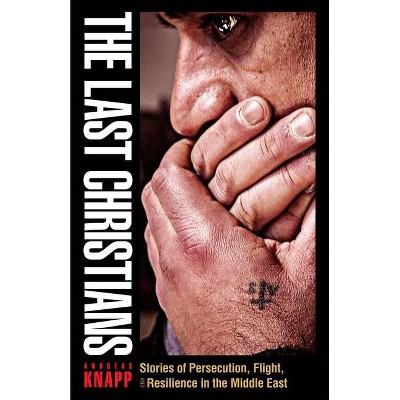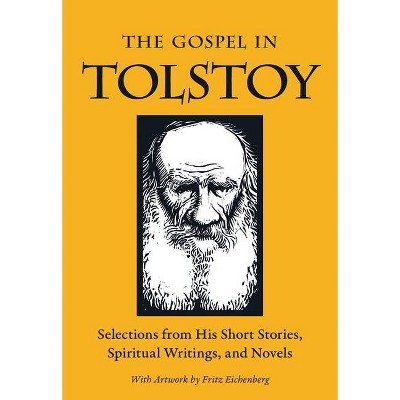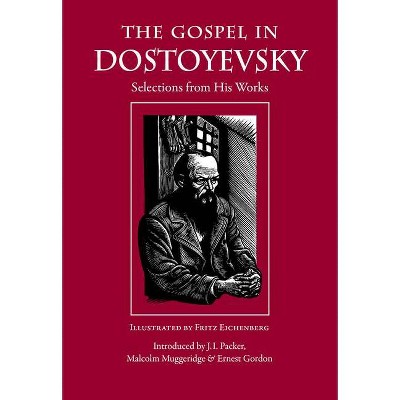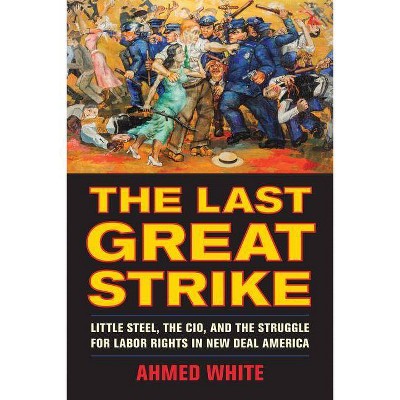The Last Christians - (Gospel in Great Writers) by Andreas Knapp (Paperback)

Similar Products
Products of same category from the store
AllProduct info
<p/><br></br><p><b> Book Synopsis </b></p></br></br><b>A Westerner's travels among the persecuted and displaced Christian remnant in Iraq and Syria teach him much about faith under fire.</b> <p/><b>Gold Medal Winner, </b> 2018 IPPY Book of the Year Award<br><b>Silver Medal Winner, </b>2018 Benjamin Franklin Award<br><b>Finalist, </b>2018 ECPA Christian Book Award <p/><b>Inside Syria and Iraq, </b> and even along the refugee trail, they're a religious minority persecuted for their Christian faith. Outside the Middle East, they're suspect because of their nationality. A small remnant of Christians is on the run from the Islamic State. If they are wiped out, or scattered to the corners of the earth, the language that Jesus spoke may be lost forever - along with the witness of a church that has modeled Jesus' way of nonviolence and enemy-love for two millennia. <p/><b>The kidnapping, enslavement, torture, and murder of Christians</b> by the Islamic State, or ISIS, have been detailed by journalists, as have the jihadists' deliberate efforts to destroy the cultural heritage of a region that is the cradle of Christianity. But some stories run deep, and without a better understanding of the religious and historical roots of the present conflict, history will keep repeating itself century after century. <p/><b>Andreas Knapp, </b> a priest who works with refugees in Germany, travelled to camps for displaced people in the Kurdish region of northern Iraq to collect stories of survivors - and to seek answers to troubling questions about the link between religion and violence. He found Christians who today still speak Syriac, a dialect of Aramaic, the language of Jesus. The uprooted remnant of ancient churches, they doggedly continue to practice their faith despite the odds. Their devastating eyewitness reports make it clear why millions are fleeing the Middle East. Yet, remarkably, though these last Christians hold little hope of ever returning to their homes, they also harbor no thirst for revenge. Could it be that they - along with the Christians of the West, whose interest will determine their fate - hold the key to breaking the cycle of violence in the region? <p/>Includes sixteen pages of color photographs.<p/><br></br><p><b> Review Quotes </b></p></br></br><br><b>Knapp is sincere in his beliefs, </b> and his passionate book will provide much-needed anecdotal testimony for readers interested in the plight of Christians throughout Iraq and Syria. <b>--Publishers Weekly</b><br><br><b>In his book <i>The Last Christians, </i></b> Andreas Knapp reports on the tragic decline of Christian communities in Iraq and Syria. His book is a harrowing report on the demise of Christianity in the territories of the Middle East ruled by the Islamic State. --<b>Sunday newsweekly</b><br><br><b>Knapp is especially impressed that Aramaic Christians have remained nonviolent and peaceable, </b> despite centuries of continual violent oppression. Yousif, the refugee Knapp accompanies to Iraq, comments, "For the terrorists, it is an honor to kill. Shouldn't it be an honor for us Christians to pray for and love our persecutors?" --<b>Borromeo Society</b><br><br><b>Knapp's book <i>The Last Christians</i> is a historical narrative</b> written from the victims' perspective. It seeks to explain why the once flourishing culture of Christianity in the Middle East has been steadily decimated over the course of centuries, and why, in light of the Islamization of the entire region in recent years, for many Christian refugees the hope of returning to their homelands has dwindled. --<b>Day by Day radio show</b><br><br><b>This book is alarming, suspenseful, and stirring.</b> <i>The Last Christians: Stories of Persecution, Flight, and Resilience in the Middle East</i> takes stock of the precarious situation of Christians in the Middle East. Every so often the reader will need to pause and reflect. Inevitably, the question arises: How would I have reacted in that situation? How would I have behaved? What would I have done? Yet the book's narrative compels one to keep reading. ... One would wish to give this book as recommended reading to all Christians, and especially to all politicians. Many eyes would be opened. --<b>Catholic News Network</b><br>
Price History
Price Archive shows prices from various stores, lets you see history and find the cheapest. There is no actual sale on the website. For all support, inquiry and suggestion messagescommunication@pricearchive.us




















